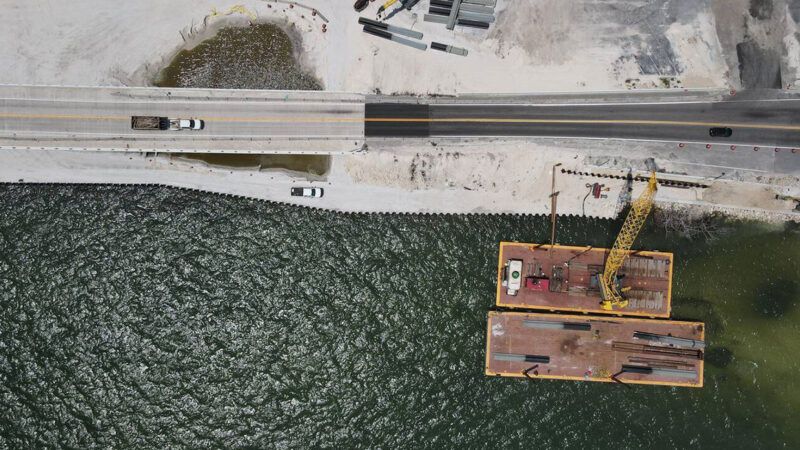How Florida Cut Red Tape To Fast-Track Hurricane Repairs
Bureaucracy usually mires construction projects in delays. Florida is trying to buck that norm.

When storm damage caused by Hurricane Ian cut off access to Sanibel Island on Florida's Gulf Coast in fall 2022, the Florida Department of Transportation (FDOT) had to act quickly. It set out to repair the bridge and hoped to have the entire project completed by October 31—an ambitious goal. Yet thanks to a suspension of bureaucracy and red tape, not only did it meet the deadline, it beat it: The bridge reopened to trucks on October 11 and to the public on October 19.
The hurricane made landfall as a Category 4 storm on September 28, destroying portions of the Sanibel Causeway, a three-mile bridge system connecting Sanibel Island to the mainland and cutting off any of the island's 6,300 residents who hadn't evacuated.
The Sanibel Causeway used three bridges separated by two causeways, roads built along man-made islands created by piling up compacted dirt, sand, or rocks on the ocean floor. Hurricane Ian's severe wind and rain washed away much of that underlying sediment, destroying the roadways on top, and damaged several of the bridges' approach ramps, rendering the bridge system impassable.
By October 2, FDOT had enlisted two Florida contractors to help with repairs. In the November/December 2022 issue of Transportation Builder, a periodical published by the American Road & Transportation Builders Association, John Schneidawind called the repair project a "confluence of resources and autonomy." FDOT and the contractors worked 24-hour shifts both moving in thousands of tons of building materials and rebuilding the structures. "It was a very coordinated effort, but it got us directly here with limited interruption," FDOT engineer Kati Sherrard told Transportation Builder. "At one point we were dumping one load of material every minute and a half."
A similar situation occurred in June 2023 after a crashed tanker truck destroyed an overpass on Interstate 95 in Philadelphia, as state officials stepped back and allowed the private sector to work. Democratic Pennsylvania Gov. Josh Shapiro signed an emergency declaration that allowed state officials to circumvent normal bidding rules and personally expedited environmental permits that would otherwise take months.
The Sanibel Causeway repairs were only temporary; after completion, crews started on a permanent fix, rebuilding it to be stronger and better equipped to withstand severe weather. But as in Philadelphia, there is a lesson to be learned: Bureaucratic red tape makes the construction process less efficient, which in extreme cases can be a matter of life and death.


Show Comments (12)